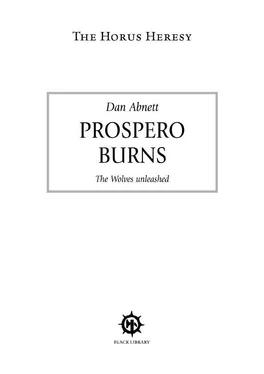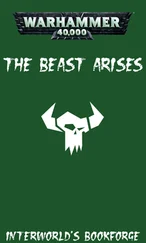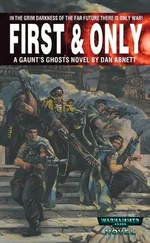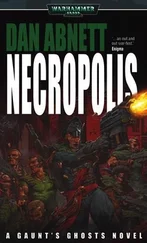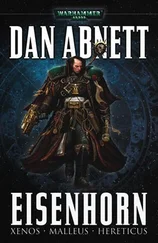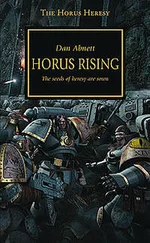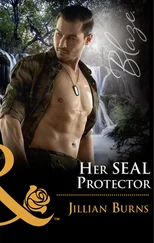Dan Abnett - Prospero Burns
Здесь есть возможность читать онлайн «Dan Abnett - Prospero Burns» весь текст электронной книги совершенно бесплатно (целиком полную версию без сокращений). В некоторых случаях можно слушать аудио, скачать через торрент в формате fb2 и присутствует краткое содержание. Жанр: Боевая фантастика, на английском языке. Описание произведения, (предисловие) а так же отзывы посетителей доступны на портале библиотеки ЛибКат.
- Название:Prospero Burns
- Автор:
- Жанр:
- Год:неизвестен
- ISBN:нет данных
- Рейтинг книги:3 / 5. Голосов: 1
-
Избранное:Добавить в избранное
- Отзывы:
-
Ваша оценка:
- 60
- 1
- 2
- 3
- 4
- 5
Prospero Burns: краткое содержание, описание и аннотация
Предлагаем к чтению аннотацию, описание, краткое содержание или предисловие (зависит от того, что написал сам автор книги «Prospero Burns»). Если вы не нашли необходимую информацию о книге — напишите в комментариях, мы постараемся отыскать её.
Prospero Burns — читать онлайн бесплатно полную книгу (весь текст) целиком
Ниже представлен текст книги, разбитый по страницам. Система сохранения места последней прочитанной страницы, позволяет с удобством читать онлайн бесплатно книгу «Prospero Burns», без необходимости каждый раз заново искать на чём Вы остановились. Поставьте закладку, и сможете в любой момент перейти на страницу, на которой закончили чтение.
Интервал:
Закладка:
вЂIt’s no secret that we used to know how to do things that we can’t do anymore,’ said Hawser, вЂgreat feats of technology, and constructions, miracles of physics. We’ve forgotten how to do things that our ancestors five thousand years ago considered rudimentary. Five thousand years is nothing. It was a golden age, and look at us now, picking through the ashes to put it back together. Everyone knows that the Age of Strife was a dark age during which mankind lost countless treasures. But really, ser, do you know what we lost exactly?’
вЂNo,’ replied Bakunin.
вЂNeither do I,’ Hawser replied. вЂI cannot even tell you something as basic as what we lost. I wouldn’t know where to start.’
вЂPlease,’ said Bakunin. He shivered as though he was sitting in a draught. вЂCaches of data are being recovered all the time. Why, just the other day, I heard that we now had complete texts for all three of Shakespire’s plays!’
Hawser looked the understaffer in the eye.
вЂAnswer me this,’ he said. вЂDoes anyone even know why the Age of Strife happened? How did we end up in the great darkness of Old Night to begin with?’
*
Hawser woke up. He could still smell the whurpu leaf and hear the background chatter of the culinahalle.
Except he couldn’t.
Those things were years ago and far away. He’d blacked out and been dreaming for a second. He could smell blood and lubrication oil. He could smell body odours, scents of dirt and pain.
The pain of his own injuries was incandescent. He wondered if the Astartes – Bear – would give him a shot of something. It didn’t seem likely. Bear’s attitude towards suffering appeared to be fixed to a different scale. It was more probable that the Upplander’s mind would, at some point, cease registering the extremes of pain in a desperate effort to protect itself.
The cabin space was dark around the metal stretcher he had been laid out on. His limbs had been strapped down. They were in the air still. Everything was vibrating. There was a constant howl from the drop-ship’s engines. Every so often, turbulence jolted them.
Bear appeared. He loomed up over the stretcher, looking down. He’d sheared off the burnt ends of his mane of hair, and tied the rest back with a loop of leather. His face was long and noble, with high cheek ridges, a long nose and a prominent mouth, like a snout almost. No, not a snout, a muzzle. The intricate lines of the brown tattoos followed the geometry of Bear’s face, and accented the planes of the cheek and nose, and the angles of the cheeks and brows. His skin was wind-burned and tanned. It looked as if his face had been carved out of hardwood, like the figure post of a wyrmboat.
He stared down at the Upplander. The Upplander realised the Astartes was scanning him with a handheld device.
He clicked it off and put it away.
вЂWe’re coming in now,’ he said. The Upplander’s translator raced to keep up. вЂThere’ll be a surgeon waiting to tend you, but this is a special place. You know that. So let’s start as we mean to go on.’
He reached down, and with the fingers of his left hand, he gouged out the Upplander’s right eye.
Three
Aett
If the daemon, Bear, represented salvation, then he also represented a final submission. The Upplander no longer needed to fight the cold to stay awake, or the pain to stay alive. He let go, and sank like a rock into the glassy silence of a freezing sea. Pain devoured him. It beset him like a blizzard, so violent and furious that he could see it, even with his blinded eye.
The blizzard continued long after the pain blew out.
*
They were approaching the special place that Bear had promised to take him to. They were arriving in a snow storm. It was a terrible snow storm.
Or was it white noise? Flecks of static instead of particles of snow? A faulty pict-feed? The signal trash of a damaged augmetic optic? Just fuzz, just buzzing white speckles against–
Against blackness. The blackness, now that had to be real. It was so solid. Solid blackness.
Unless it was blindness. His eye hurt. The absence
of it hurt. The socket where his eye had been hurt.
Snow and static, blackness and blindness; the values interchanged. He couldn’t tell them apart. His core temperature was plummeting. Pain was being diluted with numbness. The Upplander knew he had long since ceased to be a reliable witness of events. Consciousness refused to reignite in any stable fashion. He was caught in an ugly cleft of half-awareness, a pitiful fox-hole in the lee-side of a snow-bank of insensibility. It was unbearably hard to distinguish between memories and pain-dreams. Was he seeing white noise on a blacked-out display screen, or blizzarding snow against solid black rock? It was impossible to tell.
He fancied the blackness was a mountain beyond the snow, a mountain that was too big to be a mountain, a black tooth of rock that loomed out of the blizzard, broader and taller than could be taken in at a single glance. It was so big that it had already filled his field of vision, up and down and side to side, before he even realised it was there. At first, he thought it was the blackness of the polar sky, but no, it was a solid wall of rock, rushing towards him.
He sighed, reassured, able at last to comfort himself by definitively separating one memory-fact from dream-fiction. The mountain, that was definitely a dream.
No mountain could be that big.
*
He was carried in out of the storm, down into the warm and muffled blackness of a deep cave. He lay there and dreamed some more.
The Upplander dreamed for a long time.
The dreams started out as pain-dreams, sharpened by the pangs of his injuries, distorted by opiates flooding into his bloodstream. They were fragments, sharp and imperfect, like segments of a puzzle, or pieces of a broken mirror, interspersed with deadened periods of unconsciousness. They reminded him of the moves of a regicide game, a match between two experienced players. Slow, considered moves, strategically deep, separated by long stretches of contemplative inaction. The regicide board was old and inlaid with ivory. He could smell the lint that had collected in the corners of the board’s case. Nearby, there was a small toy horse, made of wood. He was drinking radapple juice. Someone was playing the clavier.
The sharp edges of his mental fragments dulled, and the dreams became longer and more complex. He began to dream his way through epic cycles of dreams. They lasted years, they enumerated generations, they saw the ice encroach and thaw away again, the ocean harden and return to motion, the sun rush across the cloud-barred sky like a disc of beaten copper, winking, glittering, growing bright like a nova and then dull like a dead stellar ember. Day, night, day, night…
Inside the dreams, men came to him and sat by him in the secret gloom of the cave. They talked. A fire was burning. He could smell the copal resin smoking into the air. He could not see the men, but he could see their shadows, cast up the cave wall by the spitting fire. They were not human. The shadow shapes had animal heads, or antlers, or horns sometimes. Man-shapes sat and panted through dog-snouts. Spiked branches of horn-crest nodded as others spoke. Some were hunched with the weighty shoulder hump of winter-fat cattle. After a while, he became uncertain if he was seeing shadows on the cave wall, or ancient parietal art, smudged lines of ochre and charcoal, that had been lent the illusion of movement by the inconstant flames.
He tried to listen to what was being said by the men during the long, mumbling conversations, but he couldn’t concentrate. He thought that if he was able to focus, he would hear all the secrets of the world come tumbling out in a murmured river, and learn every story from the very first to the very last.
Читать дальшеИнтервал:
Закладка:
Похожие книги на «Prospero Burns»
Представляем Вашему вниманию похожие книги на «Prospero Burns» списком для выбора. Мы отобрали схожую по названию и смыслу литературу в надежде предоставить читателям больше вариантов отыскать новые, интересные, ещё непрочитанные произведения.
Обсуждение, отзывы о книге «Prospero Burns» и просто собственные мнения читателей. Оставьте ваши комментарии, напишите, что Вы думаете о произведении, его смысле или главных героях. Укажите что конкретно понравилось, а что нет, и почему Вы так считаете.
